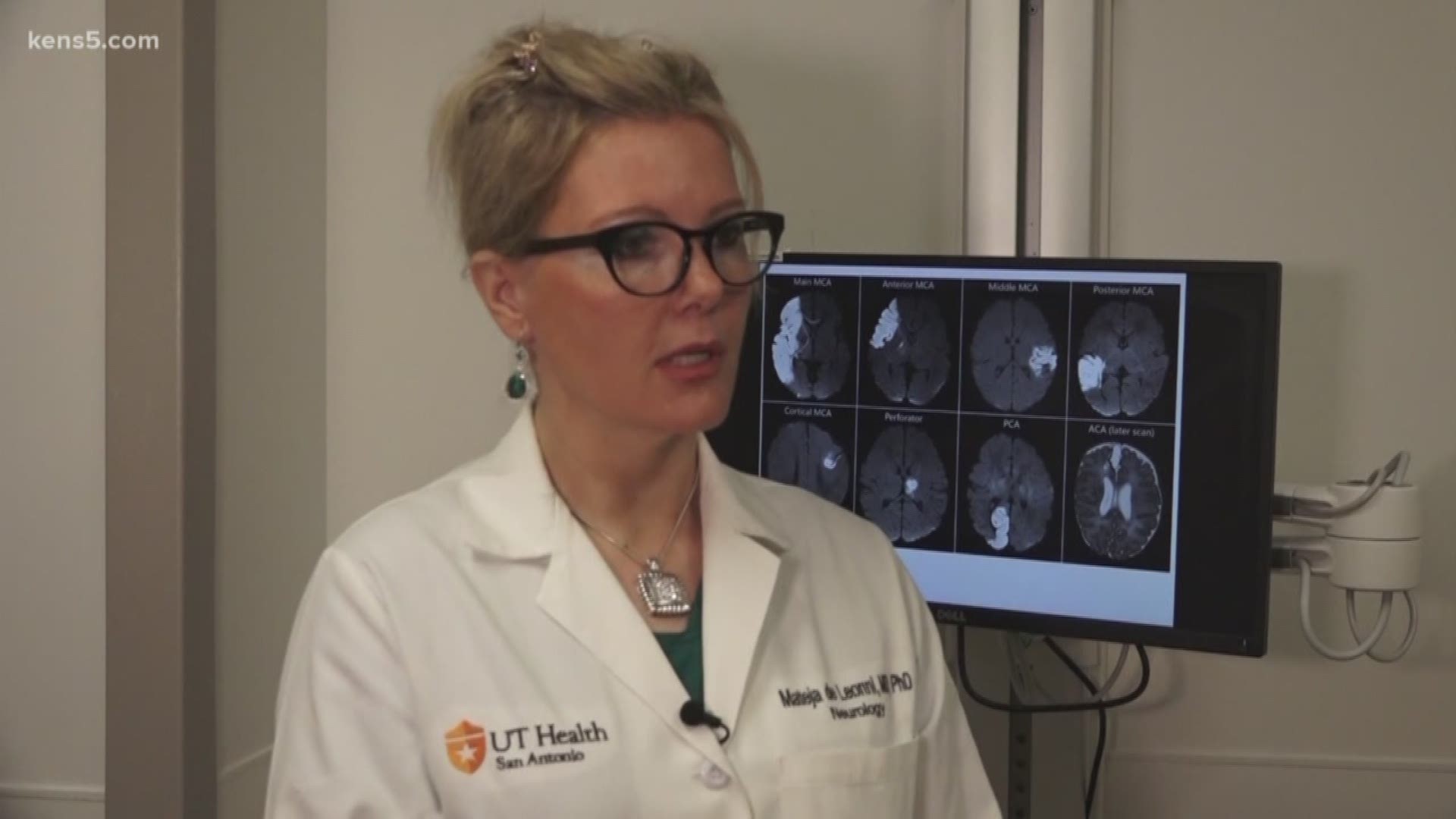SAN ANTONIO — Advancements in medicine are making it easier to treat stroke patients.
"The old statistic that we only know about 5% of what happens in the brain is no longer true. We know way more than that," said Dr. Mateja de Leonni Stanonik, a University Health System neurologist and UT Health fellow.
She says knowledge about the brain increases daily.
"We know a whole lot more about what the vessels do in the brain, how to treat clots depending on what vessel they end up in," she said.
Stroke is the fifth-leading cause of death for Americans, with the risk nearly twice as high for African Americans as for whites. Death rates have declined for a decade among most races and ethnicities, except for Hispanics, who have seen an increase in death rates since 2013.
Now researchers are trying to find out why.
When it comes to strokes, technological advancements are extremely important so that medical professionals can quickly detect and treat life-threatening blood clots. But recognizing the signs of a stroke is key.
"Those of us in the field have a huge responsibility to educate the general public in regards to how important it is to recognize these signs and symptom," Stanonik said.
And also researching to know all of the risks.
"Individually, smoking has risk, and, individually, estrogen-based oral contraceptive medicines have risk. But the combination of the two is particularly dangerous." said Dr. Lee Birnbaum, the director of Vascular Neurology at University Hospital.
He says women should listen up.
"The use of estrogen-based being at hormone replacement therapy or in the case of many younger women, it's oral contraception pills that increases risk for stroke and specifically for forming blood clots," he said.
But the hormones that contribute to that risk have been sharply reduced over recent decades, thanks to research, making the risk small, but significant.
For more information about family health call (210)358-3045. You can also find the rest of Wear The Gown stories, just go to WearTheGown.com.

